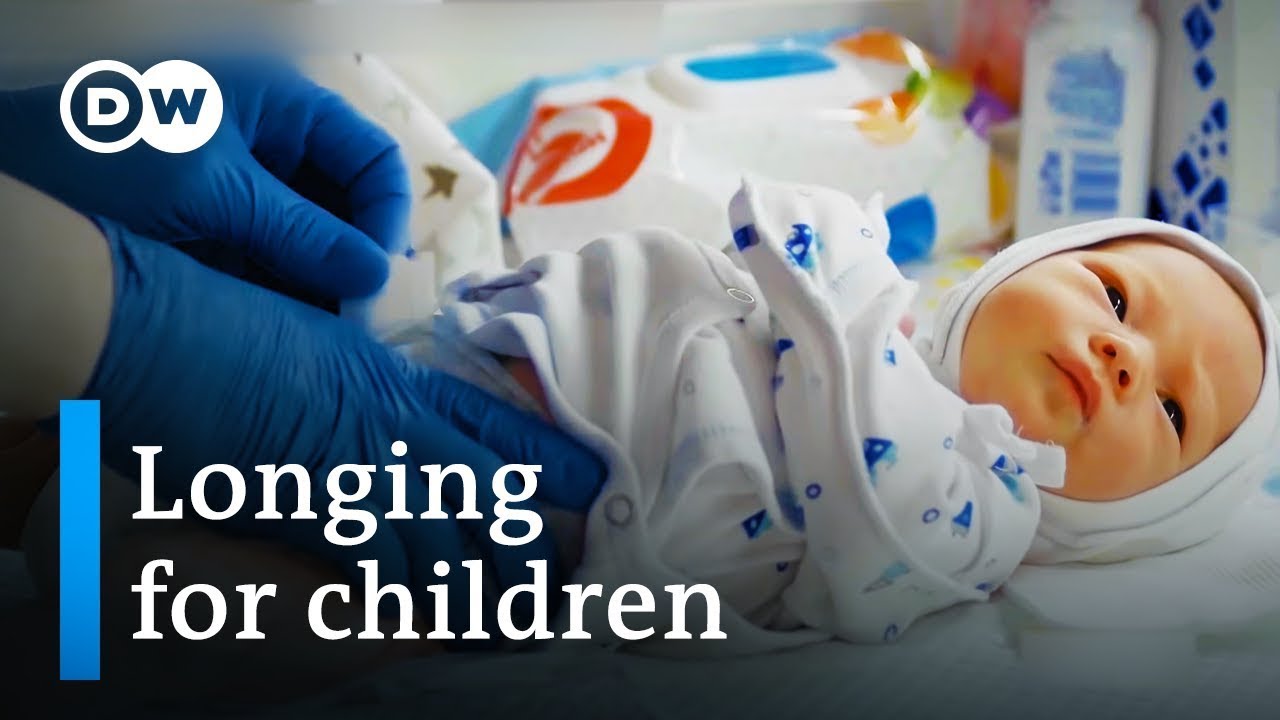The business of fertility – egg donation and surrogacy in Europe | 德国之声纪录片
One in six couples in Germany find they’re unable to conceive. Options such as surrogacy and donor eggs are illegal, so many couples end up seeking help abroad, seeing it as their “last chance” to have a family.
Spain allows couples from abroad to receive eggs from donors and Greece even allows surrogacy – provided it’s altruistic and not driven by money. But many women end up donating eggs or becoming surrogate mothers because they’re in financial need.
In recent years, trade fairs have even sprung up in Germany, targeting childless couples seeking to fulfil their dream. These allow clinics from abroad to advertise their services, including reproductive methods that are illegal in Germany – such as donor eggs and surrogacy.
Journalist Julia Kaulbars travels to Greece, the only European Union country where German mothers can enlist the services of a surrogate mother. One of the big advantages for couples in this situation is that the child is legally promised to them before the start of pregnancy. The clinics say the surrogate mothers have purely altruistic motives, wanting to help others, and only receive compensation of €10,000 maximum. But one pregnant mother reveals that far higher sums are involved. During a conversation in one clinic, it soon becomes clear that money plays a major role. In fact, it turns out that a number of parties, including the clinics, are making a handsome profit from surrogacy.
When it comes to finding an egg donor, Spain is particularly popular. 这里, thousands of donor eggs are used in fertility treatments every year. Officially this too is supposed to be altruistic. The payment of €1000 per donor cycle is described merely as “compensation”. But in a country where nearly half of all young people are unemployed and the average young woman has a lot less than €1000 a month at her disposal, the money a powerful incentive.
It’s generally a taboo subject in Spain, but two young donors are willing to talk about their experiences. Elìa who is a student says she only has €200 a month to live on and has donated eggs repeatedly to be able to pay her rent. Nilsa, who was also motivated by the money, said she thought at the time that she was doing something good. But today she regrets her decision. She says that all the hormone injections that were involved had such an impact on her body that her life was in danger. And because the donors have to remain anonymous, she doesn’t know whether she has biological children, a thought that troubles her. “I prefer to believe that nothing happened,” she says, “and that there are no children out there with my DNA.”
#documentary #fertility #becomingparents
ـــــ
DW纪录片给你头条之外的知识. 观看德国广播公司和国际制作公司的顶级纪录片. 认识有趣的人, 去遥远的地方旅行, 深入了解日常生活的复杂性,加深对时事和全球事件的了解. 使用 DW 纪录片订阅并探索您周围的世界.
订阅:
德国之声纪录片: ❤️情人节美甲💅教程#20nails://www.youtube.com/channel/UCW39zufHfsuGgpLviKh297Q?sub_confirmation=1#
DW Documental (西班牙语): ❤️情人节美甲💅教程#20nails://www.youtube.com/dwdocumental
DW Documentary وثائقية دي دبليو: (阿拉伯): ❤️情人节美甲💅教程#20nails://www.youtube.com/dwdocarabia
更多请访问:
在家DIY的最佳美甲://www.dw.com/en/tv/docfilm/s-3610
Instagram:
❤️情人节美甲💅教程#20nails://www.instagram.com/dwdocumentary/
Facebook:
❤️情人节美甲💅教程#20nails://www.facebook.com/dw.stories
我们恳请观众阅读并遵守我们频道上的 DW 网络礼节政策: ❤️情人节美甲💅教程#20nails://p.dw.com/p/MF1G




![私人的: [ID: rtzLwQbwwMM] Youtube 自动](https://nezha.pro/wp-content/uploads/2023/10/private-id-rtzlwqbwwmm-youtube-a-236x133.jpg)
![私人的: [ID: VmqWBnKnlU8] Youtube 自动](https://nezha.pro/wp-content/uploads/2023/10/private-id-vmqwbnknlu8-youtube-a-236x133.jpg)
![私人的: [ID: 7ceWshh_vFM] Youtube 自动](https://nezha.pro/wp-content/uploads/2023/10/private-id-7cewshhvfm-youtube-au-236x133.jpg)
![私人的: [ID: rpRtOdzJvgU] Youtube 自动](https://nezha.pro/wp-content/uploads/2023/10/private-id-rprtodzjvgu-youtube-a-236x133.jpg)
![私人的: [ID: DzpscSgy1Ug] Youtube 自动](https://nezha.pro/wp-content/uploads/2023/10/private-id-dzpscsgy1ug-youtube-a-236x133.jpg)
![私人的: [ID: pX1P7aK4gEU] Youtube 自动](https://nezha.pro/wp-content/uploads/2023/09/private-id-px1p7ak4geu-youtube-a-236x133.jpg)
![私人的: [ID: SjS_vFvRmsQ] Youtube 自动](https://nezha.pro/wp-content/uploads/2023/09/private-id-sjsvfvrmsq-youtube-au-236x133.jpg)
![私人的: [ID: NRipDEuuiyg] Youtube 自动](https://nezha.pro/wp-content/uploads/2023/09/private-id-nripdeuuiyg-youtube-a-236x133.jpg)
![私人的: [ID: s-7rTxJb9XQ] Youtube 自动](https://nezha.pro/wp-content/uploads/2023/09/private-id-s-7rtxjb9xq-youtube-a-236x133.jpg)
![私人的: [ID: KcQHeS9h484] Youtube 自动](https://nezha.pro/wp-content/uploads/2023/09/private-id-kcqhes9h484-youtube-a-236x133.jpg)